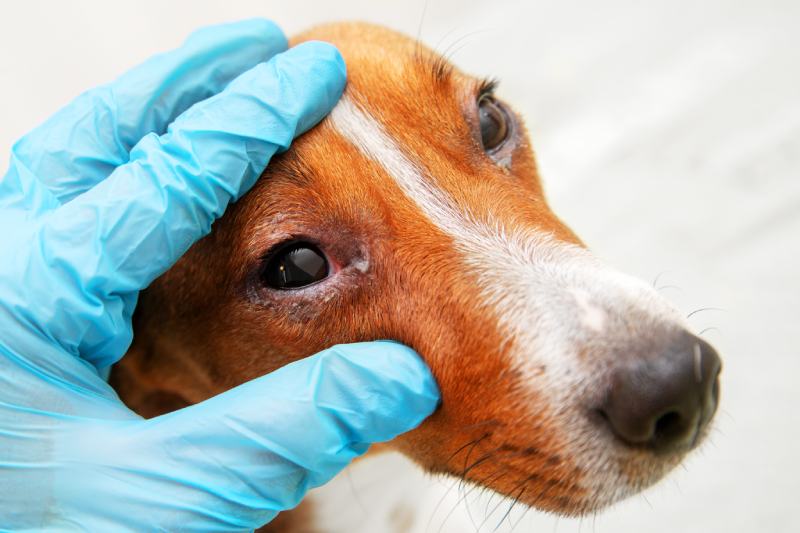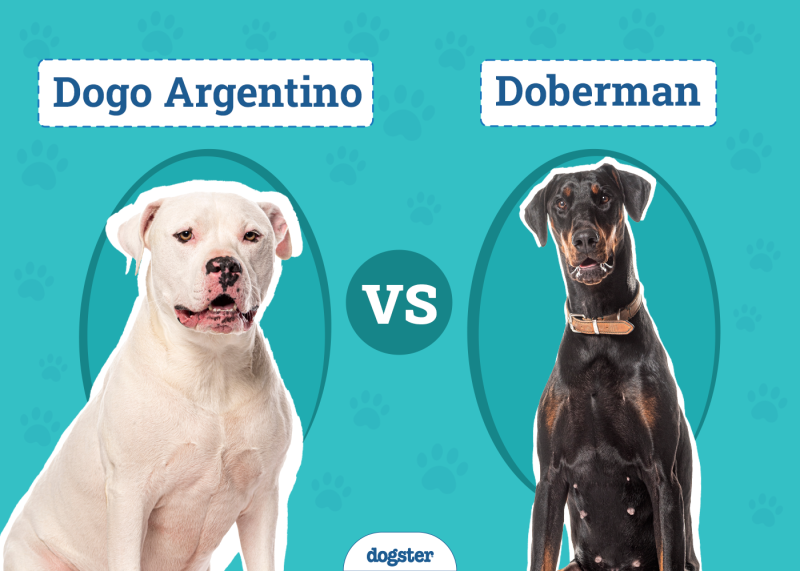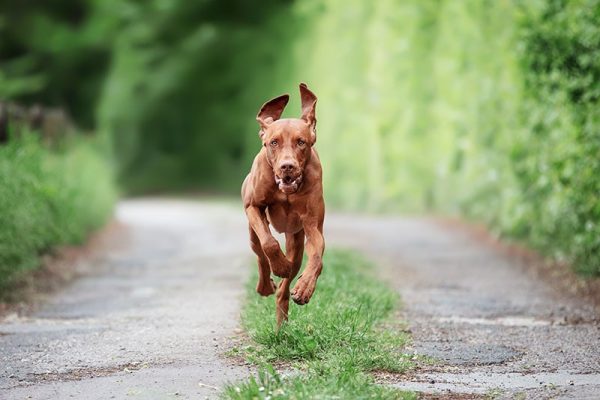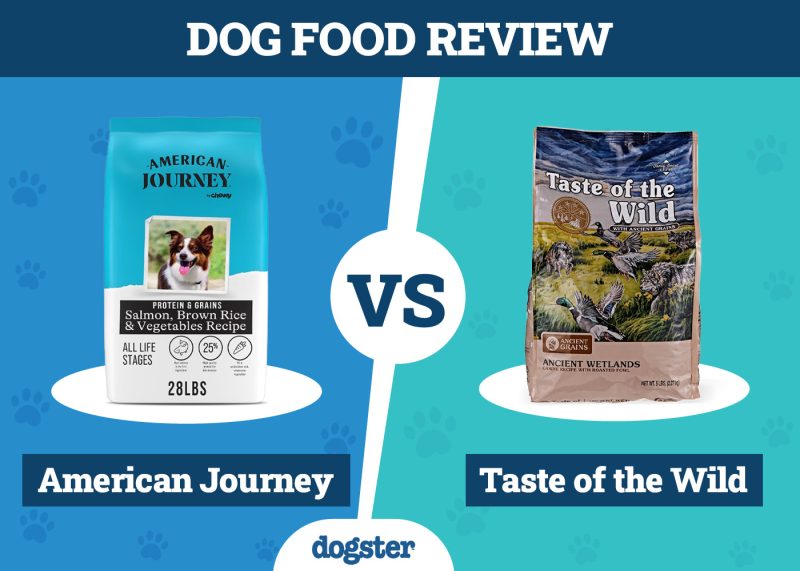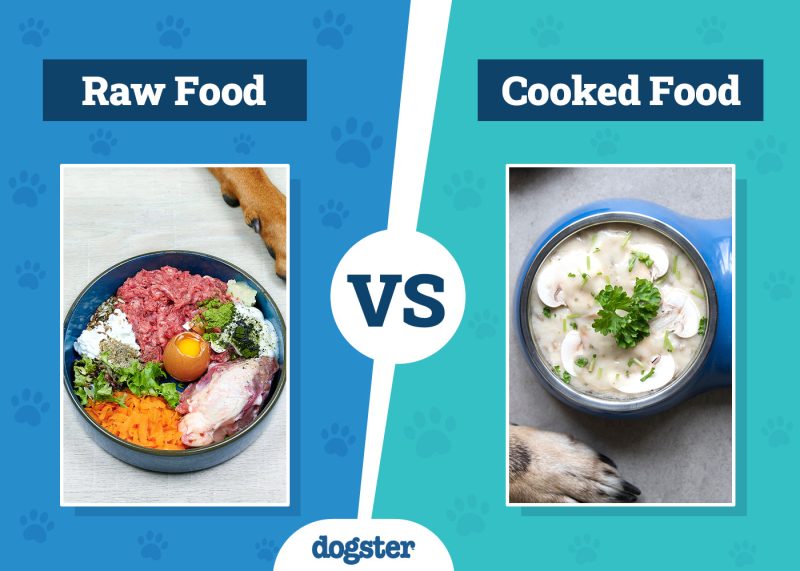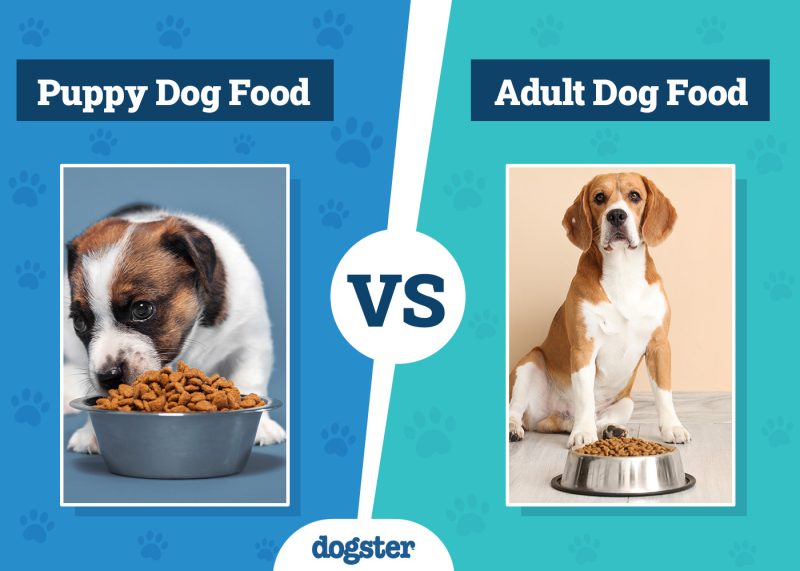Does your dog have red, inflamed, and watery eyes without other clinical signs? They probably have conjunctivitis, a common eye problem in dogs. Also called pink eye, it can occur in any dog breed, regardless of age. It is important to note that once conjunctivitis has localized in one eye, it can easily spread to the other eye if left untreated.
When you notice changes in your dog’s eyes, it is important to contact your veterinarian because conjunctivitis could be a clinical sign of more severe diseases, such as canine distemper or canine influenza. If left untreated for too long, it can even lead to permanent blindness.

What Is Conjunctivitis in Dogs?
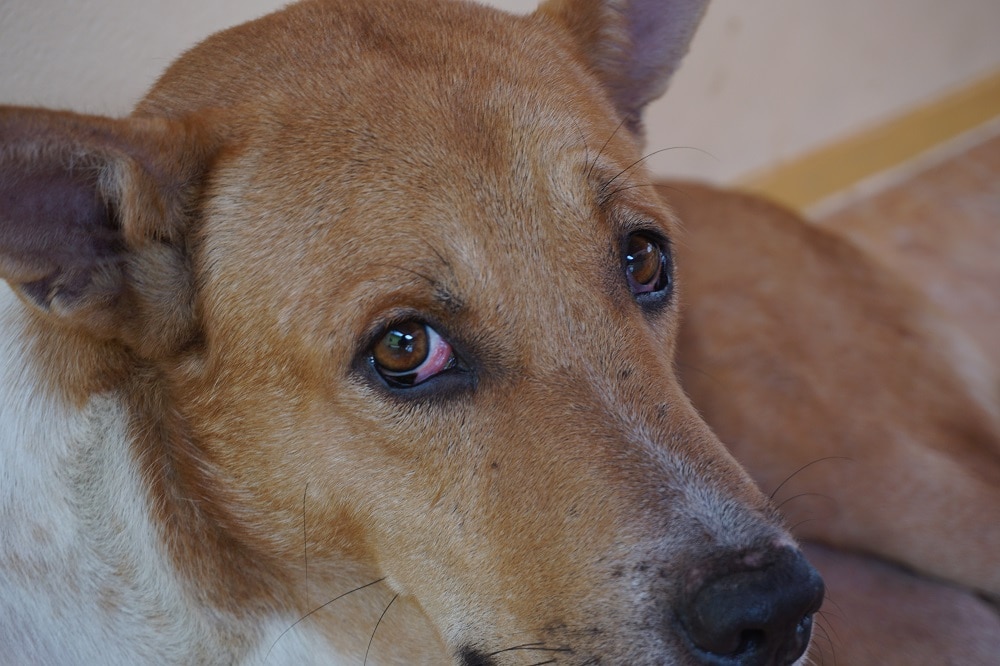
Conjunctivitis is the inflammation of the ocular conjunctiva, the membrane that covers the eyeball and lines the inner surface of the eyelids. This membrane secretes the mucus portion of the tear film and is similar to the mucous membrane of the mouth and nose. The conjunctiva also covers the third eyelid.
When this membrane becomes inflamed as a result of an eye condition or injury, the tissue becomes red, swollen, and sometimes painful. Dogs with conjunctivitis have red eyes with watery, cloudy, whitish, or yellow-greenish secretions that may run down the eyes or dry and stick to the eyelids. Depending on the consistency and color of the secretions, veterinarians may suspect the type of problem, whether it is a bacterial infection or an allergy, for example. However, additional tests are often required.
Conjunctivitis can be primary or secondary (caused by other medical conditions) and affect one or both eyes. This condition can occur in combination with itching and hair loss around the eyes, coughing, sneezing, and a runny nose. It is not considered life-threatening but can be a manifestation of a more severe medical condition.
Additionally, it can cause considerable discomfort, secondary infections, and problems in the periocular area (the region around the eyes), which can stress your dog. Depending on the underlying cause, some types of conjunctivitis can lead to permanent blindness if left untreated.
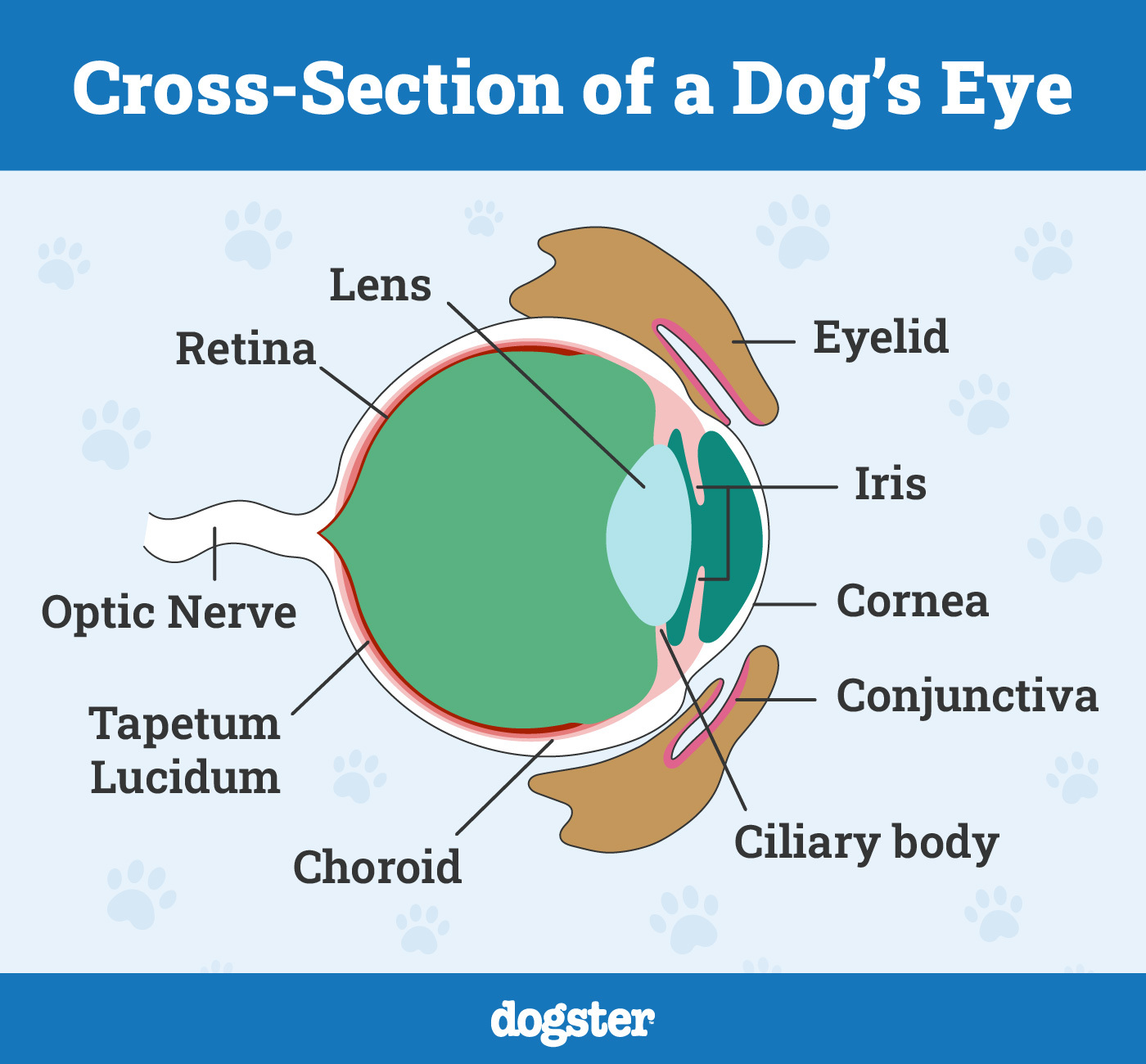
What Are the Signs of Conjunctivitis in Dogs?
Conjunctivitis can be easily recognized in pets, especially if their owners have dealt with it before.
- Red, inflamed eyes, especially the white part of the eyes
- Prominent third eyelid
- Watery, mucus-like, or purulent secretions that are transparent, cloudy, and white or greenish-yellow
- Swollen eyeballs
- Frequent blinking
- Rubbing their eyes with their paws because of pain and itching
- The eyelids sticking together
In addition, dogs will keep their eyes partially or completely closed and may experience discomfort in the light due to the inflammation.
Seek veterinary advice if you’re concerned about your pet’s well-being.
If you need to speak with a vet but can't get to one, head over to PangoVet. It's our online service where you can talk to a vet online and get the advice you need for your pet — all at an affordable price!
What Are the Causes of Conjunctivitis in Dogs?
Conjunctivitis can occur from several causes and can be primary or secondary. It is a manifestation or consequence of other pathologies, which can be severe in some cases.
Bacterial Causes
Bacterial conjunctivitis is usually secondary to other eye problems. It can be caused by dry eye syndrome (keratoconjunctivitis sicca) and eyelid problems. The signs are noticed when dogs open their eyes, as there are yellow-green purulent secretions.
Viral Causes
The main viral causes of conjunctivitis in dogs are canine distemper and canine herpesvirus-1 (CHV-1). Besides conjunctivitis, dogs with distemper show other clinical signs, such as nasal discharge, fever, coughing, vomiting, and lethargy. It often leads to death. Upper respiratory infections and dog flu (canine influenza) can also lead to conjunctivitis.
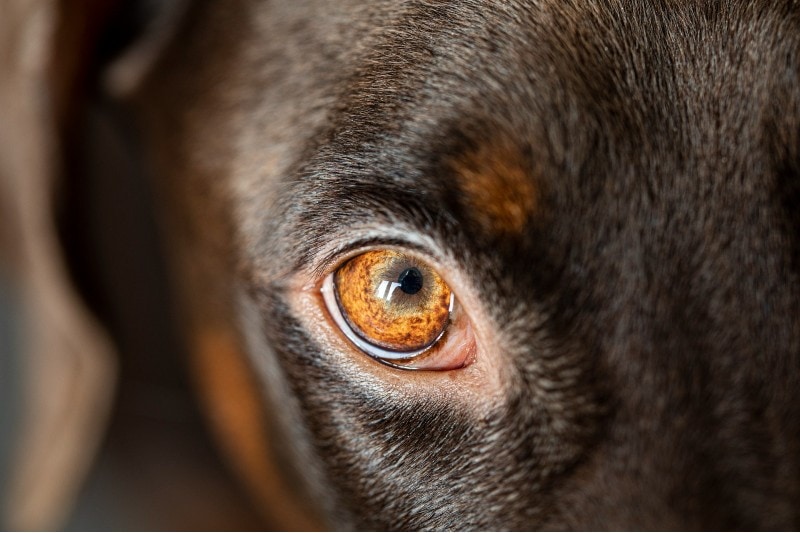
Parasitic Causes
In some geographical regions, dogs can get infected with the parasite Thelazia, which can be found under the third eyelid and in the conjunctiva and tear ducts. The main clinical signs include purulent conjunctivitis with blepharospasm (squinting), tearing, and keratitis (inflammation of the cornea).
Immunological Causes
- Various allergies
- Drug reaction
- Dry eye syndrome
- Diseases in which the body’s immune system attacks its own tissues
Allergic conjunctivitis can occur in any dog breed, but young adults are more prone. The factors that favor the occurrence of this condition are dust, food allergies, some medicines, mold, and essential oils toxic to animals.
Foreign bodies
The presence of a foreign body in the moist tissues of the eye (dust, wood chips, shards, etc.) can lead to conjunctivitis.
Secondary Causes
Conjunctivitis can be associated with certain eye diseases, such as keratitis, corneal lesions, uveitis, and glaucoma.
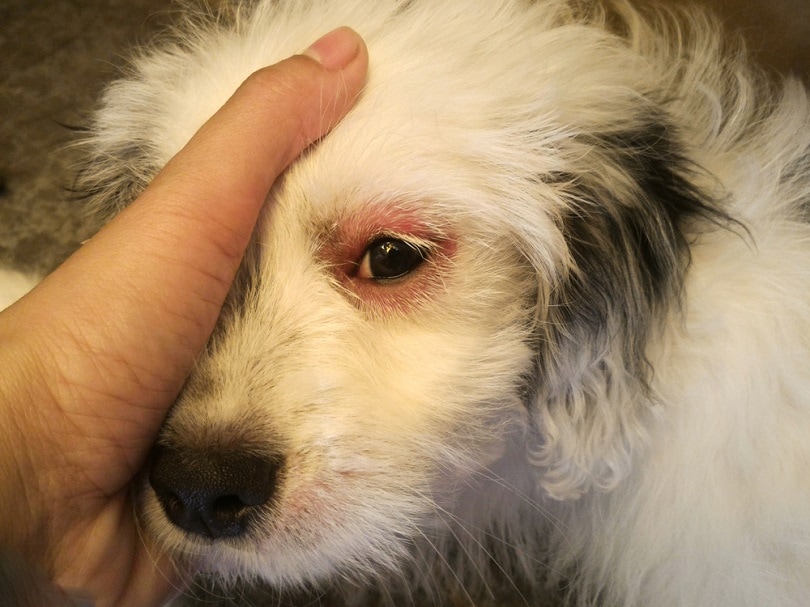
Can Conjunctivitis Spread to Other Pets?
If your dog’s conjunctivitis is viral or bacterial (from canine distemper, canine influenza, etc.), it can be transmitted to other pets. Non-infectious conjunctivitis is not contagious.
Infectious conjunctivitis can spread through direct contact with another infected animal or the environment and accessories of the sick animal. As a result, if your dog has viral or bacterial conjunctivitis, their accessories (water and food bowl, toys, and bedding) must not come into contact with a healthy animal. If you have several dogs, quarantine the sick one and take the others to the vet for a check-up to ensure they are healthy.
How Do I Care for a Dog With Conjunctivitis?
If your dog has signs of conjunctivitis, take them to the vet because it can be more severe than a simple eye inflammation. In cases where conjunctivitis is secondary to other ocular or systemic diseases, the veterinarian must diagnose and treat the primary condition that caused the inflammation in question. If your dog has viral or bacterial conjunctivitis, it is best to keep them isolated and away from healthy animals.
If your dog’s conjunctivitis is caused by a foreign body, contact your veterinarian to have it removed. If your dog has developed allergic conjunctivitis, avoid letting them come into contact with the irritating substance or allergen (if you know what caused your pet’s conjunctivitis).
Avoid air currents because they could dry out your dog’s eyes and cause inflammation. Check your dog’s eyes often, and clean the secretions whenever you notice them. You can do this with sterile gauze dampened with a saline solution or warm water.
Use only the medicines your veterinarian recommends, and follow their instructions and advice closely.
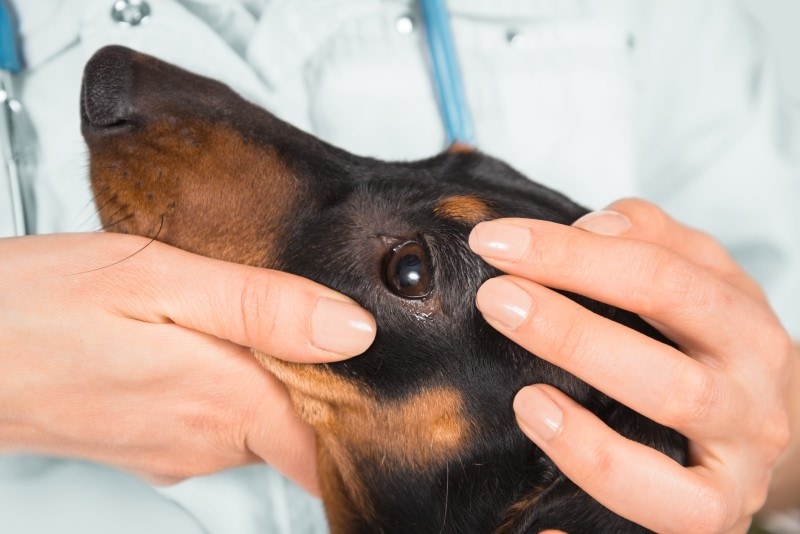

Frequently Asked Questions (FAQs)
Can Conjunctivitis in Dogs Heal on Its Own?
Conjunctivitis does not heal by itself, even if the non-infectious version is not a severe condition. This condition may indicate a more serious health problem, so you should talk to the vet. If left untreated, conjunctivitis can lead to more severe complications, such as permanent blindness.
Should I Walk My Dog if They Have Conjunctivitis?
You can walk your dog without problems; however, if the conjunctivitis is infectious, you should keep your dog away from other dogs. Viral infectious conjunctivitis may not be contagious to you, but it is to other dogs. Conversely, bacterial conjunctivitis can be contagious to you, too. If your dog has been diagnosed with infectious conjunctivitis, you can walk them, but be careful not to let them come into contact with other dogs or their accessories.
Do Dogs With Conjunctivitis Feel Sick?
Generally speaking, dogs with conjunctivitis do not feel sick. However, if your dog’s conjunctivitis is secondary to a generalized problem, such as canine distemper, immune-mediated conditions, dog flu, etc., then it is possible. In those cases, your dog will show other clinical signs besides conjunctivitis, such as fever, runny nose, apathy, or lack of appetite.

Conclusion
Most dogs develop conjunctivitis at least once in their lives. The condition can be caused by primary eye problems, such as dry eye or eyelid abnormalities, or secondary, alongside other clinical signs in systemic or immune-mediated disorders. Dogs with conjunctivitis generally have red, inflamed, and watery eyes with cloudy or purulent secretions. They can also present itching and sometimes pain. The vet will prescribe the appropriate treatment depending on the causative agent of your dog’s conjunctivitis. Conjunctivitis can be treated, and if left untreated for a long time, it can lead to permanent blindness.
- Related Read: Iris Atrophy in Dogs: Vet-Approved Causes, Signs, & Care
Featured Image Credit: Alexandr Jitarev, Shutterstock

